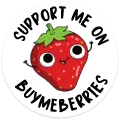In 1974, my parents gave up meat for good.
I distinctly remember my father telling us how cows were killed at the dinner table. To this day I still don't know why he chose to tell a 3 year old that. I think at the time I was more interested in Dad's sound effects. This sits alongside the same time-ish when Dad spilt a whole plate of Hungarian goulash on his lap. That's something that imprints on your memory as a kid. It was quite hilarious.
Whilst of course they had their ethical reasons for giving up meat, they'd principally given it up because of the hormones in chicken and fats, salts and additives in deli meat. Being super health concious people, it just didn't sit right with them, and thus began a lifetime of explaining to people why they chose to be meat-free, and to fend off jokes and taunts about what kind of people shunned meat: namely, weaklings, fools, and malnourished idiots. There was also the conversations at restaurants that went something like asking for vegetarian, and being told by the waiter it certainly was, because 'there was only a little bit of ham in it', or being marked as a fussy bastard because a vegetarian soup with beef stock in it was not acceptable as a vegetarian dish. Sigh.
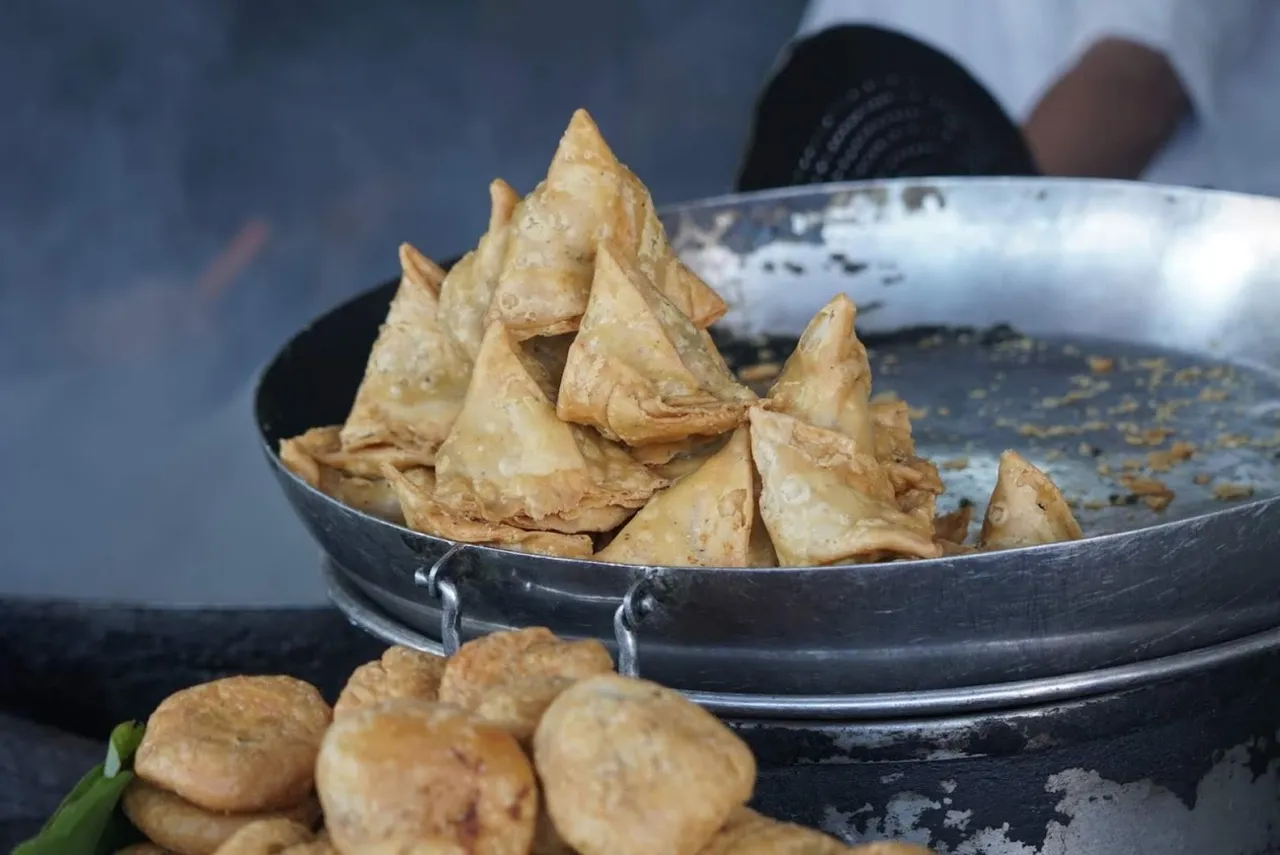
Samosa
Growing up, I never felt the desire to eat meat. Sensibly, Mum took herself off to a vegetarian cooking course because she didn't want her family to miss out on important nutrients meat might provide. On that course, she learn to make lentil rissoles, a recipe with a generous dollop of peanut butter that she still cooks to this day. Knowing it was important to eat vitamin C with grains and greens for the iron content, she'd feed us slices of raw cabbage and red capsicums as we sat at the kitchen bench begging for scraps as children do - something I'd do with my son years later. We learnt to eat all the colours on the plate - I still think it's inherently wrong if a meal is simply white. There's gotta be red, and green, and orange - a rainbow meal is a healthy meal.
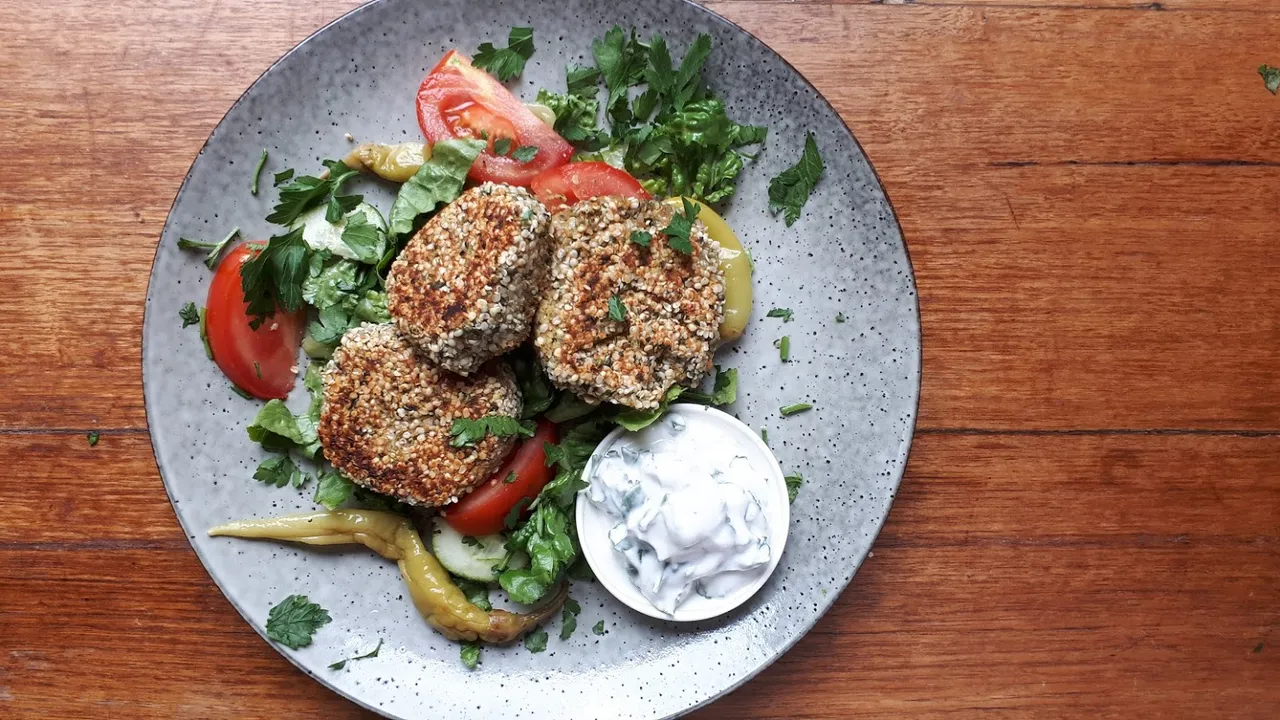
Bean Falafels
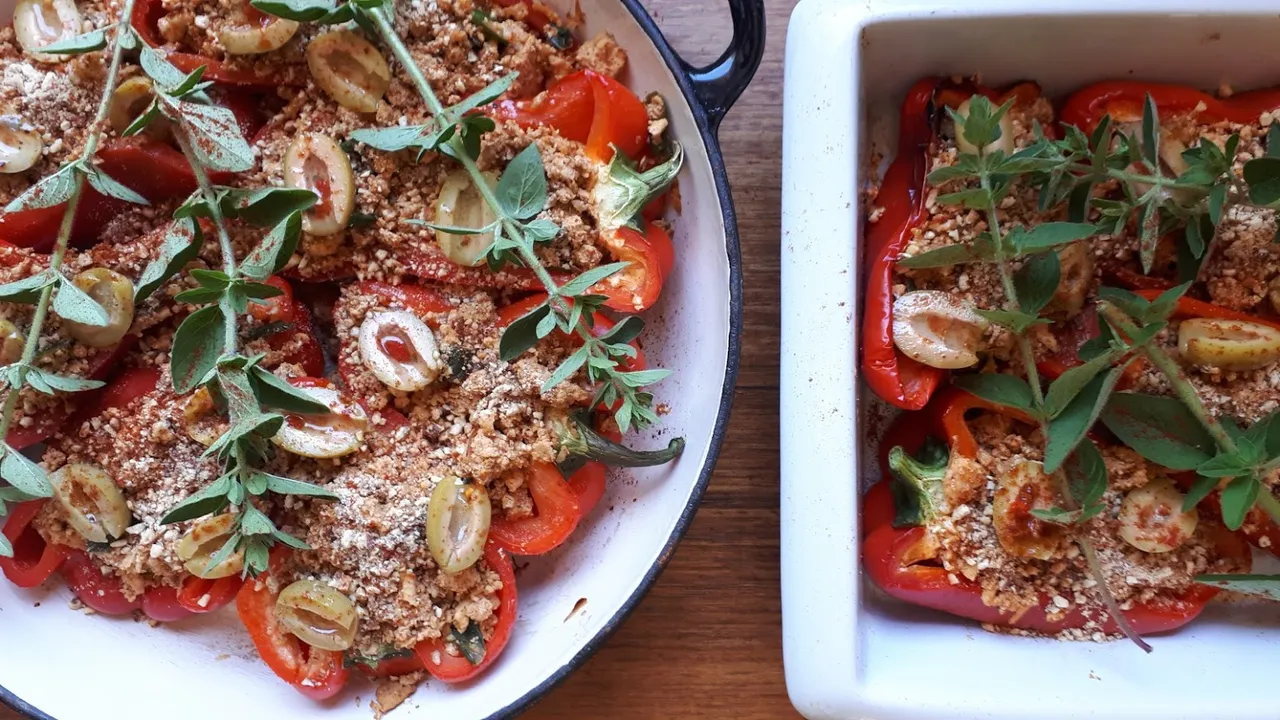
Tofu and Rice Stuffed Peppers
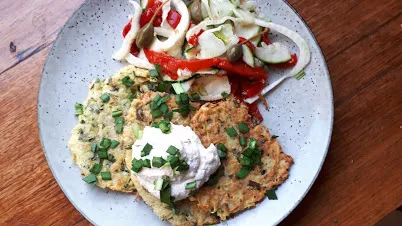
Vegan Kartoffelpuffer (potato pancakes)
When you grow up vegetarian, you just learn stuff. Handfuls of nuts for protein and energy, for example. We did include cheese as we weren't vegan (my Mum's toasted cheese and baked bean sandwiches were a delicacy on Sunday nights after the coast) but not in excess, and milk was always soy, mainly as we didn't like cows milk. A rare treat would be 'not bacon', a brand of vegetarian bacon we'd have with scrambled eggs as a treat. Vegetarian hot dogs. Not a lot of fake meat - more lentils, beans and grains. Brown rice, always. Brown spaghetti was basically child abuse, in my opinion - the wonders of white spaghetti still amaze me, when I discovered it was an option. You can actually SLURP it! I never felt envious of my friends salami sandwiches, or jam with thick wedges of butter. We had leftover lentil burgers and bean sprouts with tomato sauce on brown bread.
Restaurants were harder. Vegetarian lasagne and mushroom risotto seemed the only things on any menu, except for Indian, which was always relished! These days, of course, there's a lot more variety.
Eventually, most people had a grudging respect for my father. There weren't many guys as fit as Dad. You couldn't say a vegetarian diet had been bad for him - by 67, he was still kiteboarding, for god's sake. Much fitter than most guys way younger than him. And the vegetarian or vegan diet had caught on, and people were more educated about it.
When Dad got cancer, everyone was shocked. How can a man who never smoked, religiously exercised, never ate meat or drunk much get cancer? A little thing called the Vietnam war, it turned out. 5 months tour of duty and a lucky break going home on an empty boat meant he didn't have PTSD - he didn't even fight - but all those years later, the chemicals on the ground were what got him. He was mad, in a way. What was the point of being so healthy when cancer got him anyway? He was quickly talked down - if he hadn't been so healthy, he would NOT have lived.
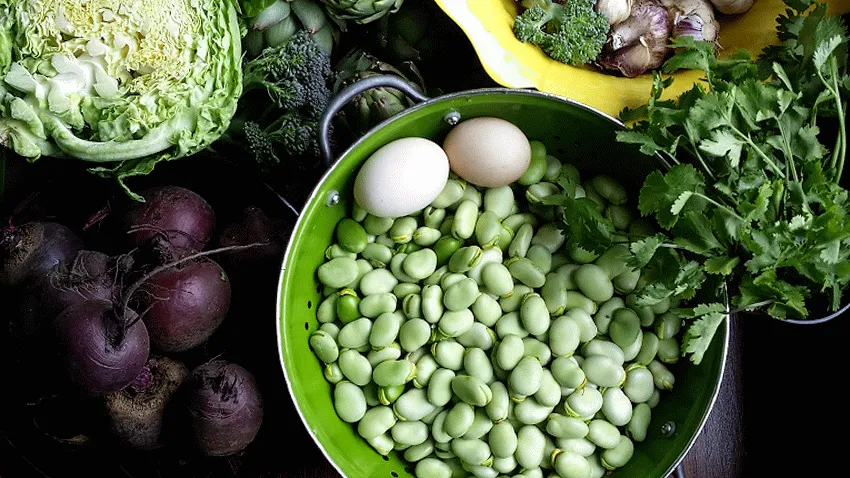
Garden delights
At one point, it was suggested that his body could do with meat to give it some strength or something or another. Maybe there was a study he read or something. Still, he wouldn't. I asked him if he'd do it to save his life, and he hesitated. He wasn't entirely sure he could. Neither parents could every imagine eating meat - it's been forty years since they bothered. That makes me so proud of them.
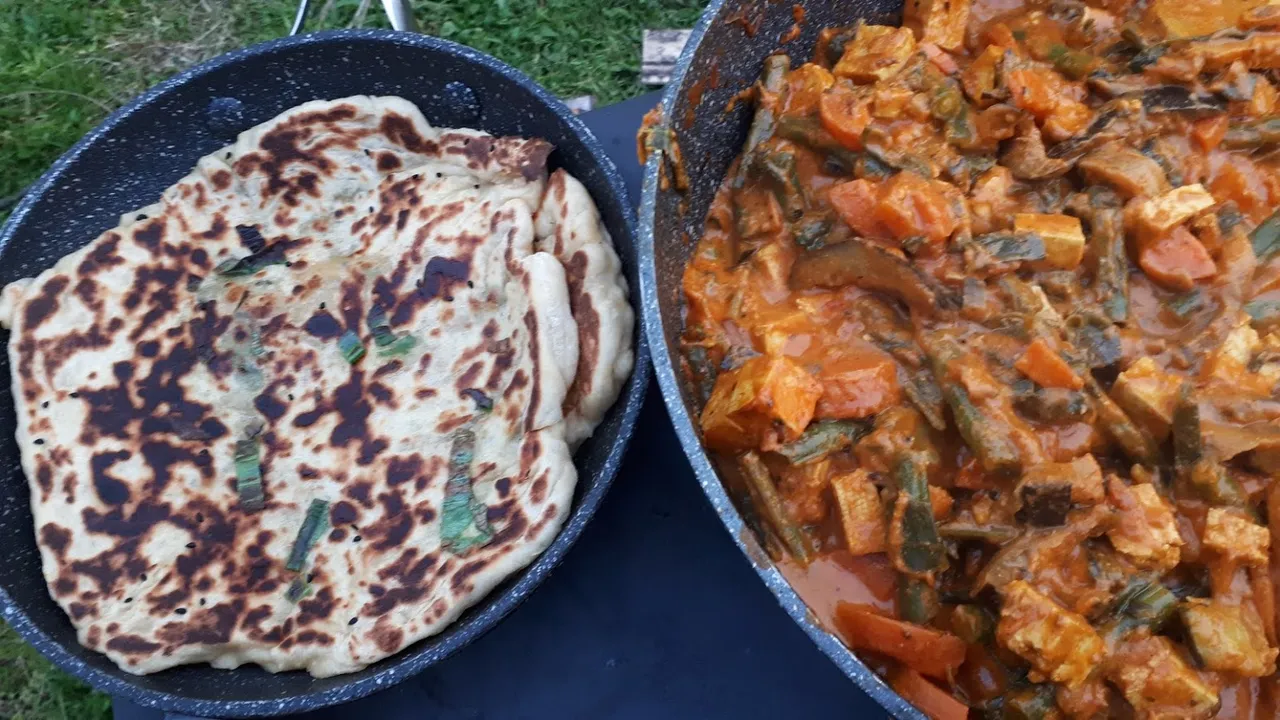
Indian Roti and Tofu Curry
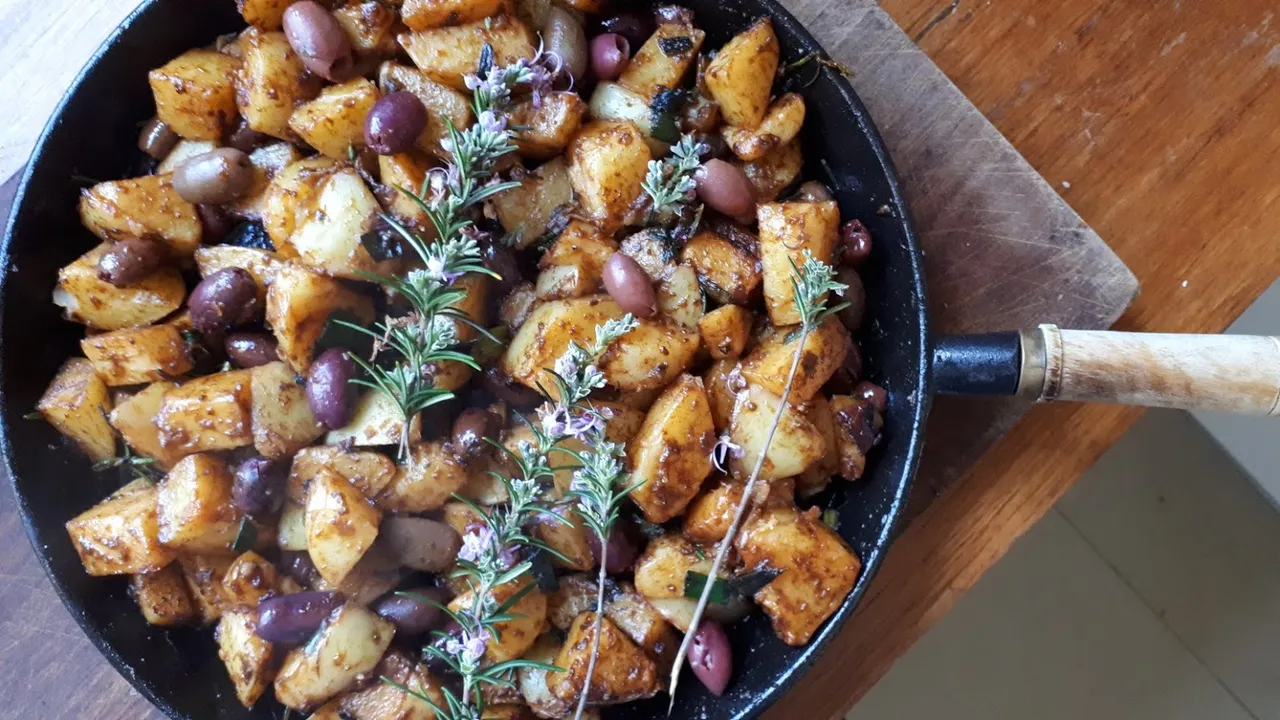
Potatos Bravas
I did, though, and you wouldn't believe with what. You know that goulash that Dad spilt on his lap? Years later, I'd be in the Czech Republic, on a freezing cold day after climbing a mountain somewhere near Cesky Krumlov, and they were serving goulash at the pub. I totally caved, and loved every bite. When I moved to England, I ate meat - usually ethically farmed or wild caught, sometimes road kill pheasant. Still, it'd only be once a month or two - most of my diet was plant based, as that's just what I cook, and having been brought up that way, I just don't see the need to eat meat.

Mushroom Shepard's Pie
Back in Australia, we have gone through phases of eating meat - sometimes we'll go a year or two and then go out and buy some really good locally caught and organically and ethically farmed meat. I don't actually have a problem with that. I have a big problem with factory farming and the amount of resources used in the meat industry, and cruelty towards animals, and mass consumerism without conscious thought about what damage can be done to the earth, let alone our bodies.
Veganism is a little different, and though many of our meals just are vegan, occasionally we do eat cheese, and again, I don't have a problem with that either. I was talking about it with Mum. She rattled off loads of meals she used to make that would be called vegan, though that word wasn't in our vocabulary at the time - stir fries, curries, soups, pilafs, porridges, mueslis. It's actually far easier to be a vegan than you think - in the end, it's just a word. It's why we like 'plant based' - it's less politically loaded, and more about the choice to eat a lot of fruits and vegetables for a healthy diet.
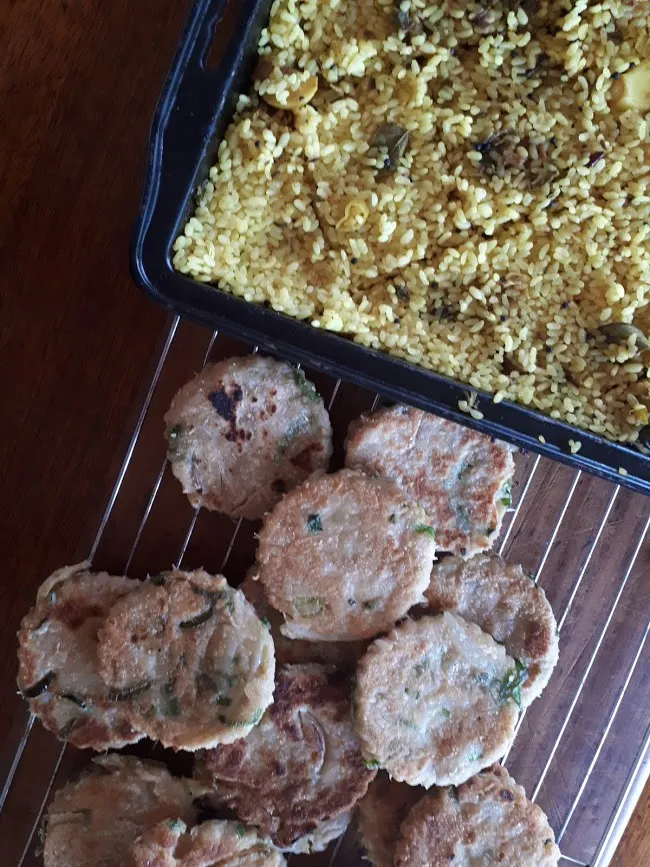
Sri Lankan Tamarind Rice with Onion and Chilli Roti
So, #veganuary? Sure. I can do vegan all month. All year, pretty much. But I'm not going to beat myself up when I really, really crave a vegetarian pizza, with loads of olives, and cheese. Especially with all the plant trimmings - oregano, spinach, zucchini, capsicum, pineapple, artichokes - ah, now I'm drooling!
I just think it's really important to be aware of where your food comes from, what's in it, and the impact of your food choices on the environment and your health. That's the bottom line. Conscious eating, if you like. Sure, eating #vegan isn't the best choice for everyone, and is downright impossible for some people to manage. But I love the idea that people can be inspired to eat a more varied diet and include more plant based choices. That it becomes more normalised, and less stigmatised, as it was when my parents had to defend their vegetarianism in the '70's, '80's and '90's.
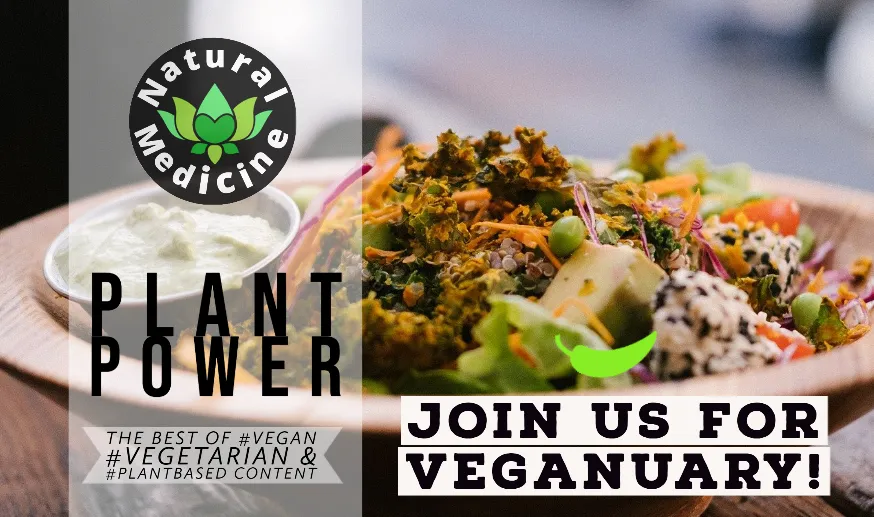
It's why I am such a big supporter of the #plantbased tag on HIVE and work to support it through @naturalmedicine iniatives such as the Plant Power curation and this months Veganuary challenge.
You don't have to be an all out vegan, or even pretend you are, but perhaps share with us your #plantbased experiments and thoughts on this topic. Or maybe you could just go all out and give it a go, see how you feel at the end of it!
With Love,



